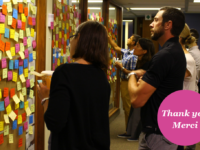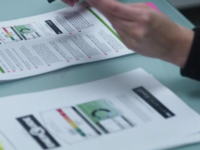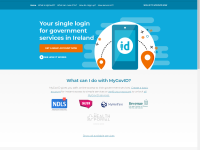Service shop, developed by the municipality of Larvik:
- is an online booking and calendar solution that allows service recipients to determine the time of receiving municipal services based on the recipients own calender and wishes
- is a secure solution that takes care of the privacy of the service recipients
- makes it easier for the employees to plan their days, the service order automatically generates employee workflow.
Innovation Tag: Service Design
A customer-friendly emergency service model from Finland where the public can find all the assistance they need at one point of service, instead of across several sites. In addition to somatic emergency services, psychiatry, substance abuse and violence prevention, crisis and social work, and child protection are available. The interprofessional model means collaboration towards a shared goal. The operational model, available anywhere in the world, improves emergency services.
Randfontein High School began implementing digital tools in their classes in 2014. All 1.3000 pupils at the school have an iPad they use during lessons and assessments, and every single classroom has been digitized. Before going digital, the school started off by having all its staff trained.
In January 2013 Sunward Park High became the first public school in South Africa to migrate completely from printed textbooks into a fully digital platform with over 1.250 learners accessing an offline digital portal (which contains many educational resources) at the time using Android tablets.
Transport Infrastructure Ireland introduced a new and innovative approach to the management of our eFlow Tolling Operations Contract on the M50 Motorway by introducing a collaborative relationship-based governance framework with our service provider.
We expect this innovation to deliver better customer services, improved toll revenues and reduced operating costs, which will result in more available funding for investment in our transport infrastructure and services.
Services Guide is a response to the scattered and inefficient information on public services available, developed as an open data digital catalogue, that together with an artificial intelligence software provides personalised information to the user while collecting data about citizen’s needs at the same time.
The OEE established a Social Innovation "UnLab" (SIU) to test an embedded innovation model and amplify energy efficiency policy and service impacts in Canada. The SIU creates value for energy efficiency stakeholders in three ways:
Building relationships and capacity for energy efficiency policy and service innovation;
Generating evidence and collective learning by co-creating and testing insights and interventions;
Amplifying impacts by scaling learning and implementing what works.
A first of its kind (in our context), cross-jurisdictional partnership between three levels of government to research, co-design and test prototypes with citizens to inform and improve the experience and uptake of home energy efficiency labeling and reporting.
The core team was comprised of representatives from Natural Resources Canada’s (NRCan) Office of Energy Efficiency (OEE), the Province of Alberta’s CoLab, and the City of Edmonton with service design support from Situ Strategy.
With the complex service system, it is difficult to help young people with numerous problems. The MY LIFE working method is a co-created, human service integration for young adults, complete with case management, a survey assessment, and an ePlatform.
In meeting our own online identity and access management requirements the Department developed MyGovID as a single online account for all government bodies in Ireland.
The innovation was in building a trust framework that provides a high level of assurance to government agencies. Customers accessing online services only have to sign up once.
MyGovID was developed as a responsive user experience using a cloud based identity and access management service.




